(The original Burmese version was published on the ISP-Myanmar Facebook page on March 12, 2021.)
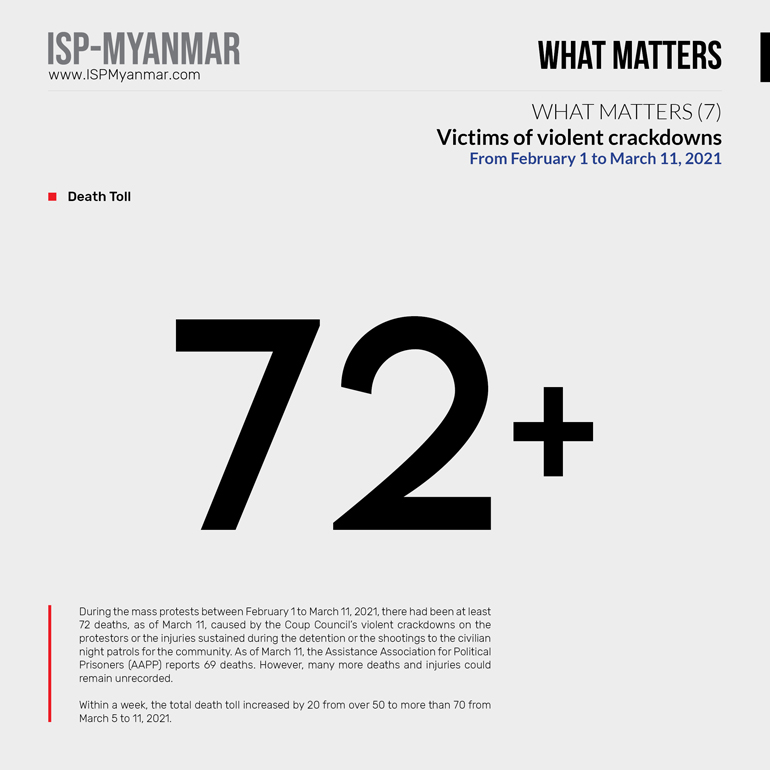
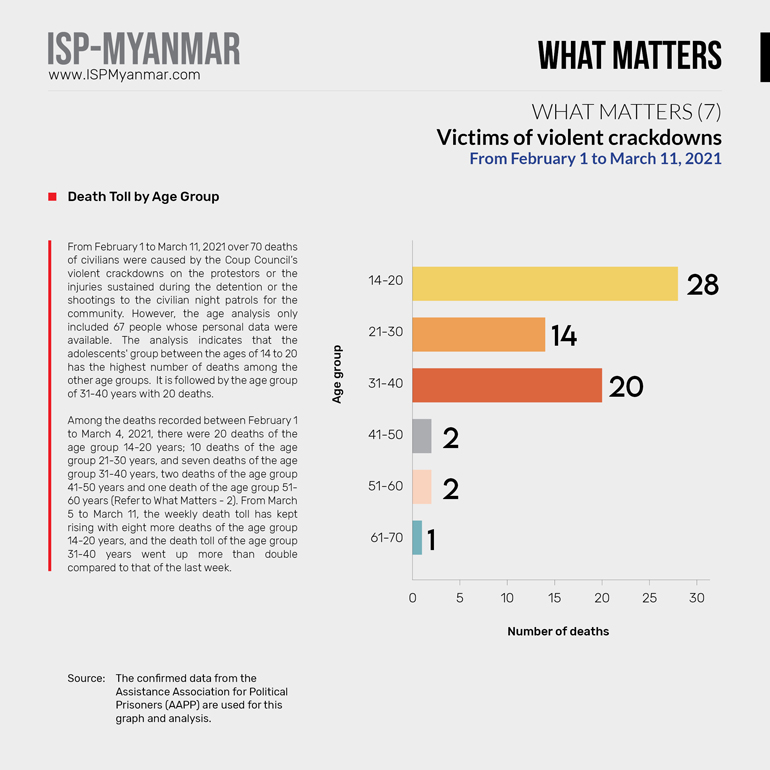
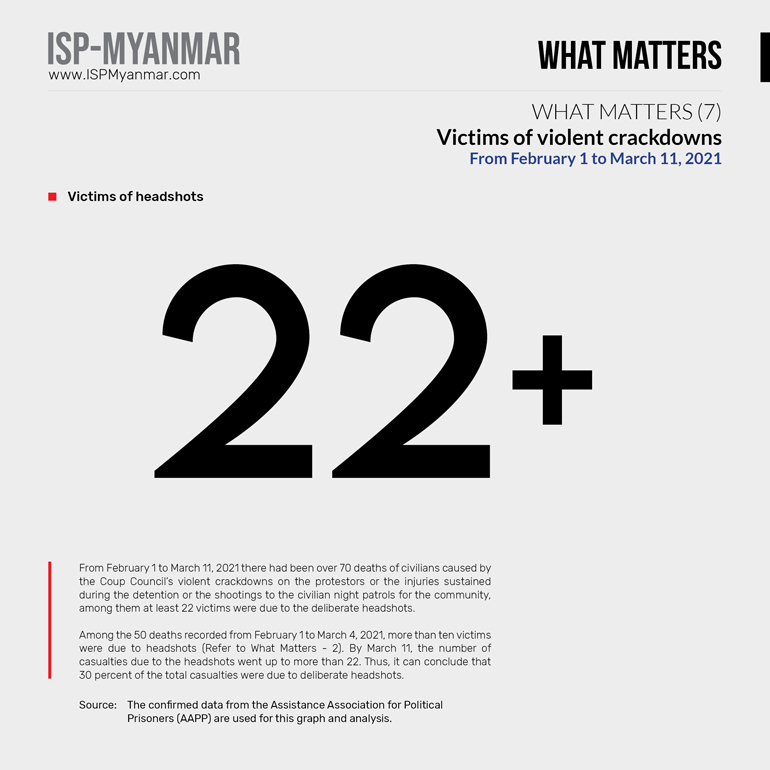
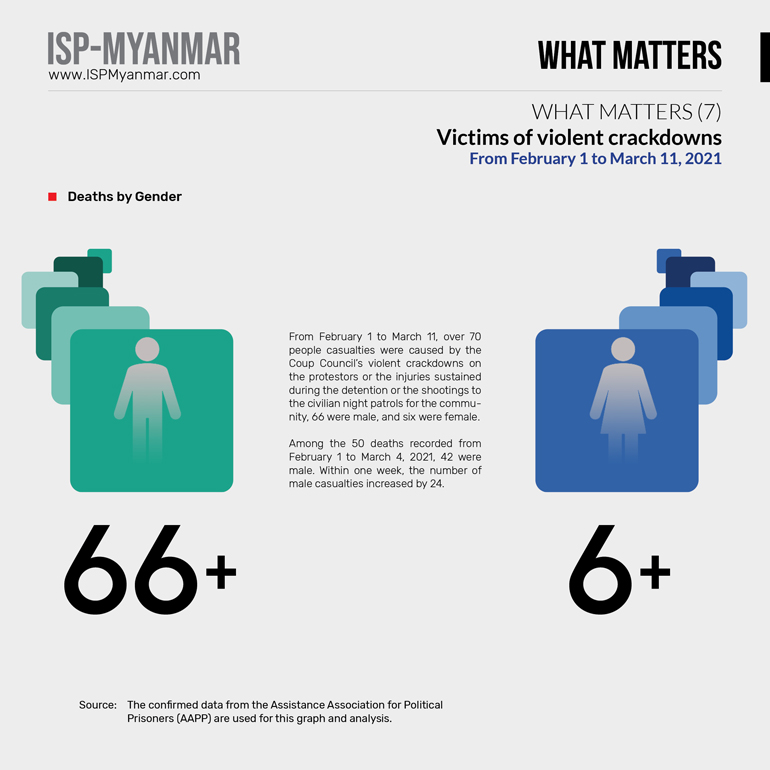
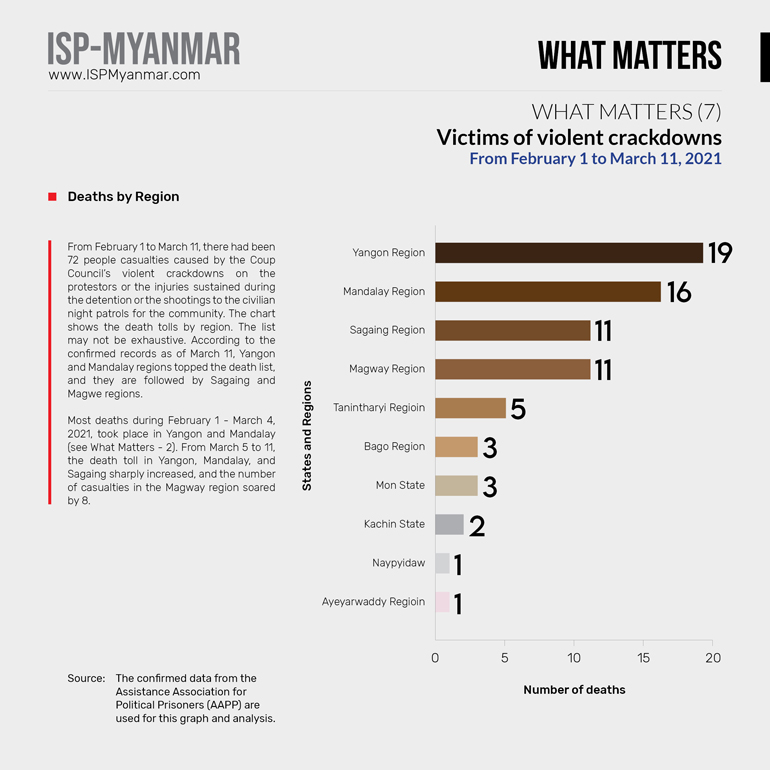
∎ Key findings in brief
Since after the February 1, 2021 coup d’état, mass protests against the military takeover of power have erupted across Myanmar. As of March 11, there have been at least 72 deaths because of the Coup Council’s violent crackdowns on the protestors or the injuries inflicted during custody at the detention centers or shooting by the security forces during the night self-patrolling of the civilians for the community security. At the same time, many people were injured. There have also been widespread human rights and dignity violations. As of March 11, the Assistance Association for Political Prisoners (AAPP) had recorded the personal details of the death toll of 69 people. There may be many who are not yet on this list.
The death toll has risen by more than 20 in just one week, compared to the figures (over 50 causalities) described in What Matters No. 2 (published on March 5, 2021, on the ISP-Myanmar Facebook page) of last week. Adolescents between the ages of 14 and 20 are still among the highest deaths while that of the age group of 31-40 years old followed the second-highest death tolls. The number of headshot victims increased by more than 50 percent from the previous week (What Matters No.2, data as of March 4, 2021), increased from more than 10 to 22 this week, which has accounted for 30 percent of the total deaths to date. Yangon Region and Mandalay Region topped the death list, and the death toll in Magway Region has risen to eight in a week.
∎ Why does it matter?
By looking at the death tolls, the targeted victims who were shot, and the body parts that were shot using lethal forces during the violent crackdowns, it can be assessed whether the security forces were in compliance with the internationally agreed rules and regulations in dealing with protestors. These are important data that can be explored from a human rights approach and a transitional justice perspective.
∎ Other relevant readings
The Assistance Association for Political Prisoners (AAPP) has recorded detailed data about the anti-coup protestors, the number and cause of death, how the security personnel has dealt with mass protests, and the reports on violations of human rights and dignity. Daily logs are also available on the AAPP website and Facebook pages. Information can also be sent to AAPP for those who are not yet on the list.
◉ What Matters ISP-Myanmar covers a section entitled “What Matters” that could benefit the current anti-coup mass movements through a series of research work. This section aims to introduce issues and data that should be addressed in a short, easy-to-read manner and accessible to everyone based on research findings. The introduced facts, cases, and data are intended to be a thought-provoking stimulus, but not as a definite view. The purpose is to make the data presented more accurate and complete. In this series, ISP would try to answer three questions in general: 1) what is the issue of concern? 2) why does it matter? 3) is it relevant for Myanmar? Addressing these questions does not involve an exhaustive examination but covers the relevant elements and claims. Thus, each issue of “What Matters” provides a list of suggested readings and references for further study. In the current situation, this section will focus on research findings related to three research topics. These are: 1) research findings related to coup d’état 2) research findings on mass movements 3) research findings on how the international community (especially powerful foreign countries that can provide significant support ) intervened in military coups and the authoritarian states. The research will be based on comparative studies. Research data collected by local partner organizations will also be requested and respectfully presented in various forms from time to time.
